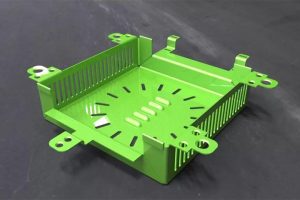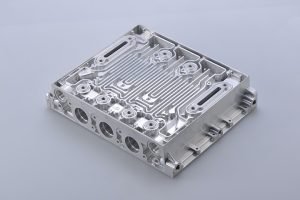In today’s fast-paced business landscape, speed and efficiency are paramount to success, especially in the manufacturing sector. The emergence of rapid manufacturing systems has revolutionized the industry by enabling businesses to accelerate their production cycles and stay ahead of the competition. Among the various techniques used in rapid manufacturing, soft tooling has emerged as a game-changer. We will explore the concept of rapid manufacturing systems and delve into the benefits and applications of soft tooling.

Rapid manufacturing systems encompass a range of technologies that enable the fast and cost-effective production of functional end-use parts. Unlike traditional manufacturing methods, which often involve lengthy lead times and high tooling costs, rapid manufacturing systems leverage advanced technologies such as 3D printing, CNC machining, and injection molding to streamline the production process.
These systems offer unparalleled flexibility, allowing businesses to quickly adapt to market demands and rapidly iterate designs. By utilizing digital design files, rapid manufacturing systems eliminate the need for physical tooling, significantly reducing lead times and costs associated with traditional manufacturing approaches.
Soft Tooling: A Catalyst for Efficiency
Within the realm of rapid manufacturing systems, soft tooling plays a pivotal role in unlocking new levels of efficiency and versatility. Soft tooling refers to the use of flexible molds or tooling inserts made from materials such as silicone, urethane, or low-temperature alloys. Unlike traditional hard tooling, soft tooling offers several advantages that make it ideal for rapid manufacturing applications.
Faster Iterations and Design Changes:
Soft tooling allows for quick iterations and design changes, as it can be easily modified or replaced. Traditional hard tooling often requires substantial time and expense to modify or create new molds, whereas soft tooling enables rapid adjustments, facilitating design optimization and reducing time-to-market.
Cost-Effective Production:
Soft tooling eliminates the need for expensive and time-consuming machining processes associated with hard tooling. The flexibility of soft tooling enables businesses to produce low to medium volumes of parts economically, making it a cost-effective solution for both prototyping and low-volume production runs.
Complex Geometries and Undercuts:
Soft tooling excels at producing parts with complex geometries, intricate features, and undercuts that may be challenging or impossible to achieve with traditional manufacturing methods. The flexible nature of soft tooling allows for the easy demolding of parts with intricate shapes and complex internal cavities.
Applications of Soft Tooling in Rapid Manufacturing:
The versatility of soft tooling opens up a wide range of applications in rapid manufacturing:
Prototyping and Iterative Design: Soft tooling enables businesses to quickly produce functional prototypes for design validation and iterative improvements. It allows for rapid iterations and design changes without incurring significant costs or delays.
Bridge Production: Soft tooling facilitates the production of low to medium volumes of parts during the transition from prototyping to full-scale production. This allows businesses to bridge the gap between initial product development and mass manufacturing without investing in expensive hard tooling.
Customized Products: Soft tooling is particularly useful for manufacturing customized or personalized products. Its flexibility and ability to produce complex geometries make it ideal for creating unique items tailored to individual customer requirements.

Rapid Response Manufacturing: In fast-changing industries, soft tooling enables businesses to respond rapidly to market demands. The ability to quickly modify or replace tooling allows for agile manufacturing, ensuring timely delivery of products and staying ahead of competitors. Rapid manufacturing systems, fueled by soft tooling, have transformed the manufacturing landscape by providing unparalleled speed, flexibility, and cost-effectiveness.

Average Rating